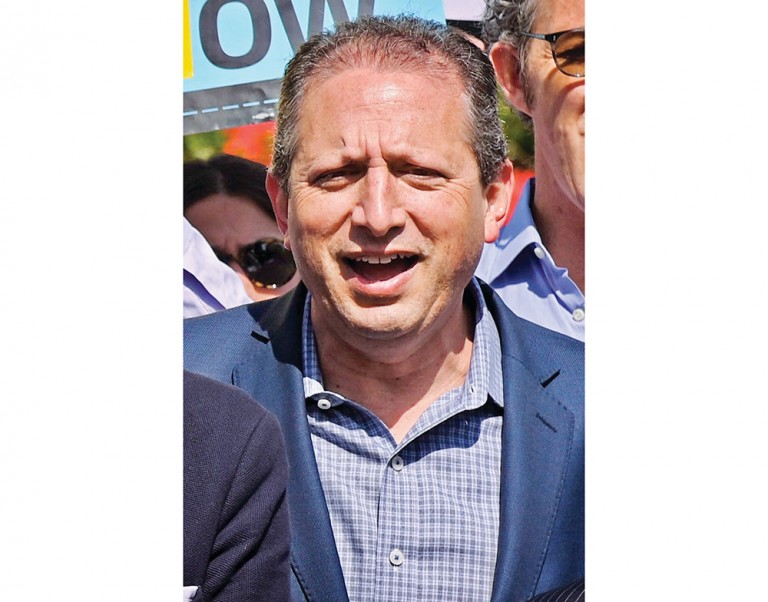By Michael V. Cusenza
City Comptroller Brad Lander on Tuesday announced that the New York City Employees’ Retirement System (NYCERS) is adopting new standards that will require their private residential real estate asset managers to honor tenant protections.
“Our new standards protect tenants in buildings owned or managed by asset managers on behalf of NYCERS, and in doing so safeguard the long-term sustainability and profitability of our real-estate investments,” Lander said. “Right now, there is no set uniform standard or regulation for property management practices in residential real estate across the country. Instead, a set of inconsistent patchwork landlord-tenant laws are in place. This is unacceptable.”
Lander later lauded his office’s new “Rental Property Management Standards” – the first of their kind adopted by a public pension fund in the U.S. – for keeping landlords from jacking up the rent or failing to provide 30 days’ notice for eviction filings.
According to Lander, investors have an economic and moral imperative to manage the properties they own in fair and equitable ways that improve resident stability and long-term well-being and enhance the health of the rental housing marketplace. Ignoring this responsibility poses real risks, the City’s chief financial officer warned, and the benefits for acknowledging this responsibility are clear. They include, but are not limited to:
- Improved long-term investment risk and return through resident stability: Strong practices in property management lead to lower resident turnover and eviction rates, decreasing the significant burden of turn costs.
- Preserved and enhanced property values: Increased capital expenditures and investments in housing quality positively impact property values and lower risk. Investment in one property contributes to an increased value for surrounding properties.
- The tools to navigate new regulatory environments: New regulation in this market is becoming increasingly likely, as negative sentiment over institutional landlords grows. Smart investors will preemptively strengthen their property management practices helping maintain their profitability in new regulatory environments.
- A decreased potential for reputational risk: As investors increase their involvement in the rental housing market, their exposure to reputational risk as a result of poor property management increases in parallel.
Why develop property management standards now?
In “Rental Property Management Standards,” Lander wrote that property management practice in residential rental real estate varies considerably across the industry and is further complicated by an inconsistent patchwork of state and local landlord tenant laws. The absence of robust standards exposes investors to a variety of risks including higher capital and operating costs associated with low resident satisfaction, higher turnover rates, difficulties retaining management employees, and a growing array of regulatory and reputational challenges. The standards provide assurance to investors with diverse national portfolios that the properties in which they invest are maintained and operated to a consistent standard of quality that provides expected financial returns, assures fair and equitable treatment of tenants, and enhances long-term value. Implementing a uniform set of standards for quality property management protects the long-term sustainability and profitability of rental housing market investments.
“Our investments do well when we do right by the people – and protecting the housing security of thousands of people while protecting New Yorkers is one of the strongest possible investments we can make,” Lander said.

